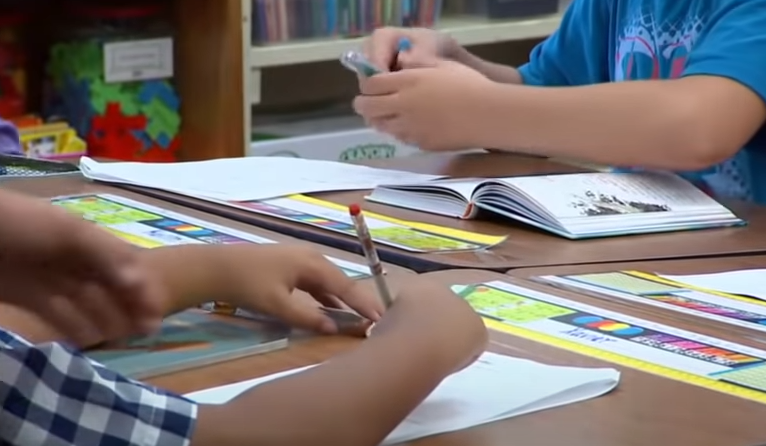“Equity in Grading” is a new Leftist trend in schools

Grades used to mean something, such as the hard work that a student (and that student’s parent) put into assignments, projects, or test preparations. However, the Left is pushing through a so-called “equity in grading” ideology into place for schools.
An education consulting firm, the Crescendo Education Group, claimed that the traditional grading scale of 0 to 100 is unfair and fails too many students. Its CEO, Joe Feldman, said that his experience as a former teacher showed him that the traditional scale is unjust.
He advocated for a 0-50 point system in order to lessen the burden of a student, especially a student who receives a 0 on an assignment and is likely to fail the class. It would allegedly give the struggling student more opportunities to pass the class than in the traditional grading system of 0-100.
Feldman claimed that the traditional grades and deadlines unfairly affect struggling students, such as students whose families are in poverty. This thinking motivated him to advocate for a new grading system because it could allow students to show they know the material and eliminate “implicit biases” against students.
He said, “If I have a piece of work, I’m more likely to have teachers who agree on the quality of that work when there are fewer choices to select as the grade. And what makes that more equitable is that we know that implicit biases can affect how teachers grade assignments.”
An example of implicit bias, based on Feldman’s words, would be a white teacher who assumed that a black student from a single-mother home could not do the work or assignments and therefore fails the student.
But Feldman’s beliefs impose assumptions, too. Feldman assumes that teachers have implicit biases and would follow these biases. It is not giving teachers the benefit of a doubt and instead, imposes a one-size-fits-all grading overhaul based on his worldview.
Yet this attempt is misguided for other reasons.
First, it creates a mindset of victimhood. Victimhood tends to enable and not empower an individual. In the past and present, victimhood creates anger, resentment, irresponsibility and endless blaming of others instead of taking charge for one’s actions and changing behavior or the trajectory of one’s path.
Second, it diminishes and devalues the hard work of those who put in the work to get good grades. It creates the wrong incentive and encourages students not to try to excel in classes. Thus, by extension, it lowers the high achievers intentionally and discourages success, grit, and innovation.
But Feldman, and similar activists, failed to address concerns that changing the grading system would punish high achievers as a trade-off for benefitting the struggling students and did not account for teachers’ individual grading philosophies.
The Left’s one-size-fits-all approach in overhauling grading in the name of equity is a drastic overcorrection and it does not solve the underlying problems of poverty facing students and their families in impoverished areas.




